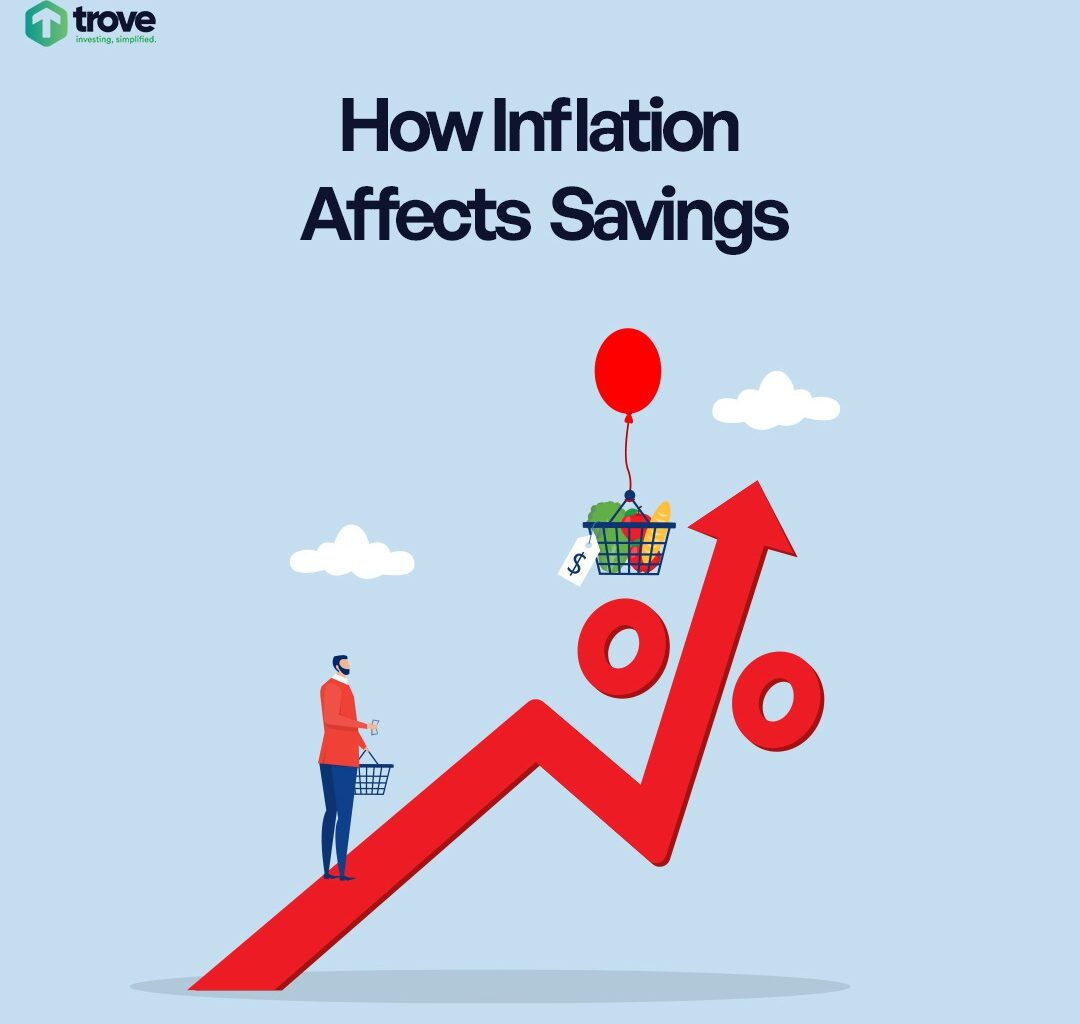Have you ever noticed how the same ₦1,000 that used to fill your shopping bag a few years ago barely gets you the basics today? That, my friend, is inflation in action—slowly eating away at your money’s value while you’re not looking.
Inflation—it’s a word you’ve probably heard tossed around, but do you fully understand how it impacts your wallet, especially your savings? It is one of those sneaky things that’s easy to ignore but impossible to escape, especially here in Nigeria.
In this post, I’ll break down exactly how inflation affects your personal savings and what you can do to fight back. By the time you’re done reading, you’ll know how to protect your hard-earned money and even grow it, despite rising prices. Let’s dive in!
What is Inflation?
Inflation is the rate at which the general prices of goods and services increase over time, reducing the purchasing power of your money. It’s why something that cost ₦500 last year might cost ₦1000 or more today. Inflation happens for a few reasons—maybe there’s more demand for things than supply, or it’s just costing more to produce those goods.
In Nigeria, inflation is no stranger. We’ve seen the cost of everyday items like rice, transport, and even sachet water skyrocket. The official inflation rate is often in the double digits, and this directly affects what you can do with your money.
Inflation isn’t just a big concept economists talk about—it affects you directly. If you’re saving for a car, a house, or even a comfortable retirement, inflation can delay those goals or make them harder to achieve. It’s especially important here in Nigeria, where many people rely heavily on savings to fund big expenses like education, business ventures, or family emergencies
Why Inflation Hurts Your Savings
Here’s the hard truth the money you’re saving now will be worth less in the future if inflation keeps rising. Let me explain:
- Erosion of Purchasing Power
Imagine you save ₦100,000 today to buy a laptop in a year, but inflation rises. By next year, that ₦100,000 might not be enough to buy the same laptop because prices have gone up. The value of your money has dropped, even though the amount stayed the same.
- Higher Cost of Living
Let’s be honest when prices go up, you’re forced to spend more on essentials like food, transport, and rent. If your income doesn’t rise at the same pace, you might find yourself dipping into your savings just to get by.
How to Protect Your Savings from Inflation
You don’t have to just sit back and watch your money lose value. Here are some steps you can take:
Invest in Assets That Grow
Instead of leaving all your money in a savings account, consider investing in assets like stocks, mutual funds, or even real estate. These have the potential to grow in value over time, often outpacing inflation.
Save in a Stable Currency
Inflation affects the naira more than some foreign currencies like the dollar. By saving or investing in USD-denominated assets, you can shield yourself from the naira’s devaluation. Platforms like Trove app make this super easy.
Review Your Budget Often
Keep track of your expenses and adjust your budget regularly. This ensures you’re not overspending and can still save consistently, even as prices rise.
Think Long-Term
Inflation might make short-term saving seem pointless, but long-term investments tend to weather the storm better. Focus on where you want to be financially in 5–10 years and start working towards that now.

Conclusion
Inflation may be inevitable, but it doesn’t have to rob you of your financial goals. The key is understanding how it works and taking proactive steps to fight back. By investing wisely, saving strategically, and staying informed, you can ensure that your money keeps working for you—not against you.
So, what will you do differently starting today? If you’re ready to take charge of your savings and protect them from inflation, check out some of the investment options available on Trove. Your future self will thank you!



